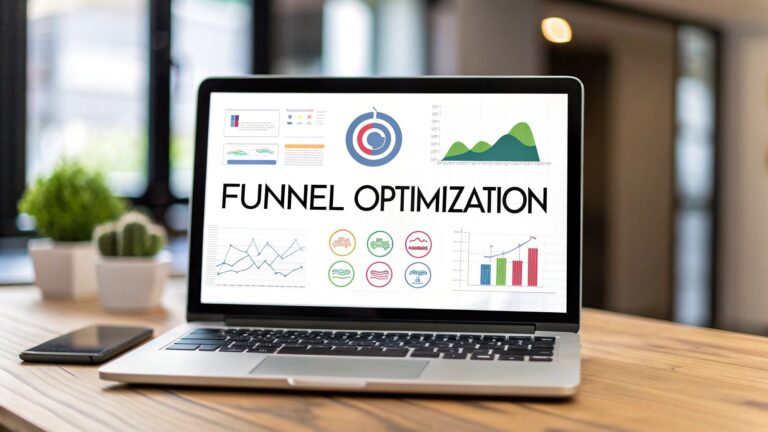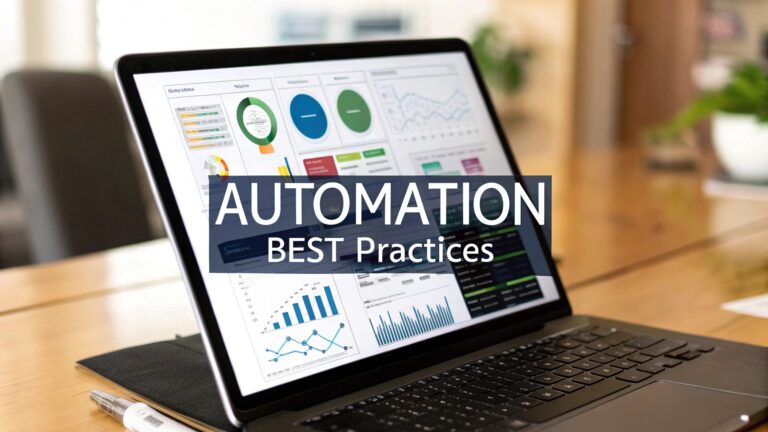Leveraging AI Automation for Business Success
Artificial intelligence (AI) has transformed business operations, offering unprecedented automation capabilities. This article delves deep into the AI automation agency landscape, revealing how businesses utilize AI to streamline processes, enhance decision-making, and outperform competitors.
The Rise of AI in Business
The advent of artificial intelligence (AI) in the business landscape represents a seismic shift in how companies operate, innovate, and compete. The journey from manual operations to AI-driven processes marks a pivotal epoch in commercial history, beginning with the inception of foundational AI technologies. Today, AI is not merely an auxiliary tool but a core component that defines the operational and strategic frameworks across various industry sectors, including healthcare, finance, and education.
In healthcare, AI has revolutionized patient care and medical research. Algorithms can now predict patient outcomes, assist in diagnoses, and even personalize patient care plans. This shift not only improves healthcare services but also optimizes operational efficiency, allowing healthcare providers to serve more patients with higher precision and care.
The finance sector has witnessed a similar transformation. AI technologies like machine learning and predictive analytics have given birth to robo-advisors, fraud detection systems, and automated trading platforms. These tools have democratized financial advice, bolstered security measures, and enhanced the customer experience by providing personalized financial services.
The sphere of education has been no exception to this technological transformation. AI-driven platforms facilitate personalized learning experiences, automate administrative tasks, and provide educators with insightful data on student performance and engagement. This evolution propels the education sector towards a more inclusive, efficient, and effective learning environment.
Amid these transformations lies a significant shift in the job market and operational strategies. AI’s rise necessitates a workforce skilled in technology and data interpretation, leading to the creation of new job roles and the evolution of existing ones. Businesses are thus compelled to re-evaluate their operational models and invest in employee training and development to harness the full potential of AI capabilities.
Moreover, AI-driven processes offer unprecedented levels of efficiency, accuracy, and scalability. They allow businesses to automate routine tasks, derive insights from large datasets, and make data-driven decisions. This evolution from manual processes to AI-enhanced operations not only bolsters productivity but also propels businesses towards innovative solutions and services, ultimately redefining market dynamics and competitive landscapes.
The integration of AI across different sectors underscores a broader narrative of technological empowerment and strategic realignment. It reflects a future where AI and human intelligence collaborate to create more value, drive progress, and navigate the complexities of modern business landscapes. The journey of AI in business, from its foundational technologies to its current indispensability, lays the groundwork for a future that is continuously reshaped by the potentials of artificial intelligence.
Understanding Marketing Automation
Building on the foundational understanding of AI’s role in modern business from the previous chapter, we delve into the domain of marketing and how AI-driven automation tools are transforming this critical aspect of business success. Marketing automation utilizes software platforms integrated with artificial intelligence to streamline, automate, and measure marketing tasks and workflows so that businesses can increase operational efficiency and grow their revenue faster.
At the heart of marketing automation empowered by AI is the ability to personalize each customer’s experience. By analyzing vast amounts of data, AI algorithms can predict customer behavior and tailor marketing messages to meet individual needs and preferences. This level of personalization extends across multiple channels, whether it be email, social media, web browsing, or mobile apps, ensuring a cohesive and personalized customer journey.
Marketing intelligence, another cornerstone of AI-driven marketing automation, offers deep insights into market trends, customer behavior, and campaign performance. By harnessing machine learning and big data analytics, businesses can identify new market opportunities, refine audience targeting, and optimize their marketing spend. This data-driven approach empowers businesses to make informed decisions and dynamically adjust their strategies in real-time for maximum impact.
Automated nurturing of prospects through personalized email workflows or targeted content distribution is a key feature of marketing automation that fosters a deeper connection with potential customers. By tracking interactions and engagement, AI systems can score leads based on their likelihood to convert, prioritizing sales efforts towards the most promising prospects. This streamlined process not only improves efficiency but also enhances the efficacy of sales teams by providing them with qualified leads and valuable insights into their behaviors and preferences.
Furthermore, AI plays a pivotal role in refining advertising strategies. Programmatic advertising, for example, uses AI to automate the buying and placement of ads in real-time, ensuring that the right message is delivered to the right person at the right time, significantly increasing ROI. Similarly, AI-driven content creation tools are capable of generating ad copy or social media posts that resonate with the target audience, adding another layer of efficiency and creativity.
By integrating AI into their marketing automation efforts, businesses can achieve unprecedented levels of efficiency, personalization, and effectiveness in their marketing operations. As we progress into the next chapter, we will explore how AI extends its influence beyond marketing, revolutionizing business process automation (BPA) through the deployment of robotic process automation (RPA) and intelligent data analysis, reinforcing AI’s pivotal role in shaping the future of work and business success.
Streamline Your Business with Cutting-Edge Automation
Empower your business with powerful automation tools designed to enhance workflows, improve efficiency, and drive online impact.
Book a CallBusiness Process Automation and AI
Business process automation (BPA) is emerging as a fundamental shift in how businesses operationalize efficiency and productivity. By integrating Artificial Intelligence (AI) into BPA, organizations are not only automating routine tasks but also enhancing their decision-making processes. This chapter explores the intricate role of AI in BPA, focusing on the deployment of robotic process automation (RPA) and how it diverges from traditional business process management systems (BPMS).
RPA, empowered by AI, is designed to automate structured and repetitive tasks. Unlike conventional automation tools, AI-driven RPA systems can interpret, decide, and learn from the data they process. This capability allows them to handle unstructured data – such as emails, voice messages, and videos – which constitute a significant portion of corporate data. The AI component in RPA systems enables them to analyze this data, understand the context, and make informed decisions, thereby taking BPA to a new level of efficiency.
The distinction between BPA and BPMS is crucial in understanding the depth of transformation AI brings to organizational processes. While BPMS focuses on managing and optimizing the entire lifecycle of business processes, BPA, especially when powered by AI, aims at automating specific tasks within those processes. This focus on task automation allows for a more granular improvement of efficiency and productivity, by eliminating bottlenecks and redundancies that may not be apparent at the process level.
Moreover, AI-infused automation technologies go beyond mere task execution. They incorporate intelligent data analysis, enabling businesses to glean insights from the operational data flowing through automated tasks. This analytical capability is transformative. It allows organizations to continuously refine and enhance their business processes based on data-driven insights, leading to an iterative improvement in productivity and operational efficiency.
These AI-driven systems are not standalone solutions but are integrated into the broader ecosystem of enterprise applications. Through APIs and microservices architectures, AI-empowered RPA systems communicate with CRM, ERP, and other enterprise systems, ensuring a seamless flow of data across the organization. This integration is pivotal, as it enables the automated processes to be informed by and contribute to the organization’s broader objectives.
In leveraging AI for BPA, organizations unlock the potential for not just streamlined operations but also for innovative business models and services. The ability of AI to analyze and act upon unstructured data opens new avenues for personalizing customer interactions, optimizing supply chains, and predicting market trends. These capabilities, when integrated within automated business processes, can significantly enhance an organization’s competitive edge.
As businesses move forward, the role of AI in BPA will continue to expand. This expansion is not just in terms of the sophistication of the technology but also in its strategic importance to organizational success. The implications of this shift are profound, marking a new era in business efficiency driven by intelligence and automation.
AI Agencies: Shaping the Future of Automated Business Solutions
AI agencies are emerging as pivotal players in the landscape of automated business solutions, guiding organizations through the complexities of adopting and implementing artificial intelligence (AI) in their operations. These agencies offer a suite of services that range from strategic consulting and development of AI solutions to integration and ongoing support. They bring expertise in cutting-edge technologies, including machine learning, natural language processing, and robotic process automation, underpinning the transition to smart business processes discussed in the previous chapter.
The value proposition of AI agencies lies in their ability to tailor AI strategies to the specific needs of a business, ensuring that the implementation of automation tools not only integrates seamlessly with existing workflows but also delivers tangible business outcomes. They conduct thorough assessments to identify process bottlenecks and areas where AI can have the most impact, thereby enabling businesses to prioritize their automation objectives.
However, the journey toward AI-driven automation is fraught with challenges. One of the foremost hurdles that AI agencies face is the resistance to change within client organizations. The transformative potential of AI can sometimes be overshadowed by concerns over job displacement and a fear of the unknown. To navigate this, AI agencies must work closely with clients to foster an understanding of AI’s role as a complement to human effort rather than a replacement, highlighting its capacity to enhance job quality and lead to the creation of new roles.
Success stories abound, illustrating the transformative impact of partnerships between businesses and AI agencies. From retail giants leveraging AI for personalized customer experiences to healthcare organizations using predictive analytics for patient care, the collaborations showcase substantial efficiency gains, cost savings, and enhanced decision-making capabilities.
An important facet of AI agency services is their commitment to ethical considerations. As stewards of AI implementation, agencies bear responsibility for ensuring that AI solutions are transparent, fair, and non-discriminatory. This involves rigorous testing and auditing processes to identify and mitigate biases in AI algorithms.
Looking forward, the role of AI agencies is set to expand, driven by the relentless pace of technological advancement and the increasing recognition of AI’s strategic value. Their expertise will be crucial in navigating the evolving regulatory landscape, ensuring compliance while pushing the boundaries of what’s possible with AI. Moreover, as AI becomes embedded in the fabric of business, these agencies will play a vital role in cultivating a skilled workforce, fostering collaboration between humans and AI to unlock new realms of creativity and innovation.
In sum, AI agencies stand at the forefront of the digital transformation, championing the integration of AI into business processes. With their guidance, businesses not only overcome the hurdles of adoption but also harness the power of AI to create more agile, innovative, and resilient operations, shaping the future of work in the AI era.
Conclusions
Artificial intelligence is no longer a futuristic concept but a present-day reality reshaping business landscapes. Through AI automation agencies, companies are streamlining operations, enhancing customer experiences, and fostering innovative growth. As AI continues to evolve, mastering its integration into business strategies will be key to securing a competitive edge.







